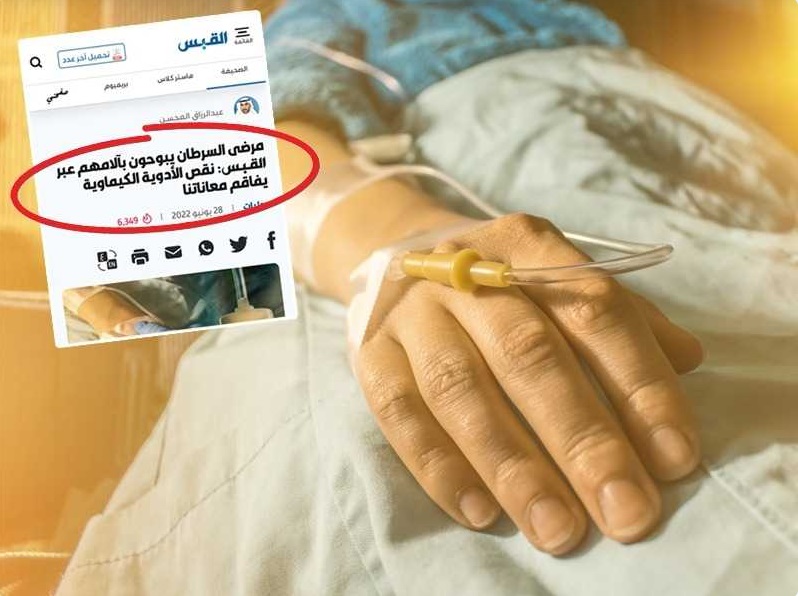Scores of cancer patient complain that they have to visit the Hussein Makki Juma Cancer Center to collect their medicines and more often than not they have to return empty handed due to the non-availability of some medicines because they feel the concerned officials to not pay enough attention to their requests saying it is not logical that cancer drugs are not available since Kuwait does not lack financial capabilities.
A local Arabic daily quoting some patients said some officials of the Ministry of Health explained to them that the Russian-Ukrainian war contributed to the problem of drug shortages, and despite their promise to solve the problem soon, this did not happen.
These patients expressed their dissatisfaction with the deterioration of their health, noting that some of them were admitted to the intensive care wards due to lack of immunity, and they cannot live with this situation, and that the lack of chemotherapy drugs continues without solutions.
An official source revealed that more than 2,200 cancer cases are discovered annually in Kuwait, which requires updating health care plans and providing the necessary medicines.
Over 12 years Kuwait reportedly has 29,645 cases of cancer 14,313 of these are Kuwaitis. This is in addition to 15,323 non-Kuwaitis diagnosed with cancer between 2006 and 2018.
Meanwhile, the cure rates for prostate cancer is believed to 85% and 90 percent of the patients improve with medication and a good life style.
In response to what was published by a local Arabic daily last June, about the shortage of cancer drugs in the centers affiliated with the Hussein Makki Juma Center for Specialized Surgery, Faisal Al-Moajel, head of the Federation of Drug Importers and Pharmacies, confirmed that the Corona pandemic negatively affected the production, shipment and distribution of medicines, and everyone without exception has been affected by this situation.
Al-Moajel explained the Ministry of Health officials met with the Federation of Drug Importers and Pharmacies, at the beginning of the pandemic in March 2020, in order to coordinate and cooperate to ensure the availability of medicines and maintain the strategic stock, as it was explained to the Ministry that the situation is exceptional and must be dealt with on this basis, but unfortunately, this has not happened, adding that the government documentary cycle is slow and complicated and does not keep pace with developments, indicating that the Ministry of Health is not an exception, but it is concerned with human health, especially if it is concerned with medicines for cancer and incurable diseases.
Al-Moajel pointed out that the decisions issued by the ministry may encounter obstacles at the time of implementation, for example, but not limited to, “the decision to import unregistered medicines”, as there are medicines needed by patients that are not registered for an administrative or commercial reason, and when they are requested, they are faced with routine procedures that delay or impede obtaining them through the authorized agent of the manufacturer, and accordingly, to avoid delays in obtaining this drug for the patient, the Ministry will bring it through special requests that have a higher cost.
Al-Moajel pointed out to the importance of the ministry’s coordination with the Union, to achieve a qualitative leap in terms of the arrival and continued availability of vital medicines, especially those designated for cancer, chronic diseases, nervous system and others, pointing out that there are other difficulties related to shipping and transport conditions in light of the continuing repercussions of the Russian-Ukrainian war, and its impact. in a number of sectors.

